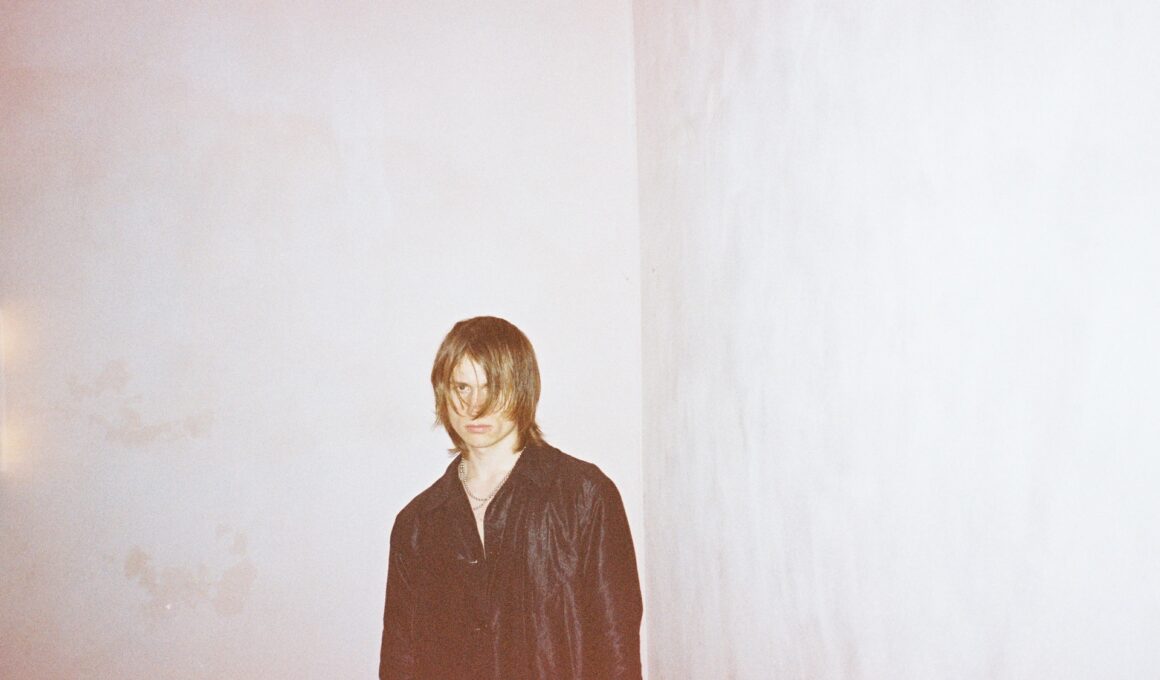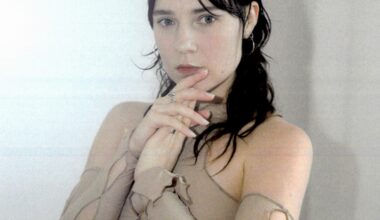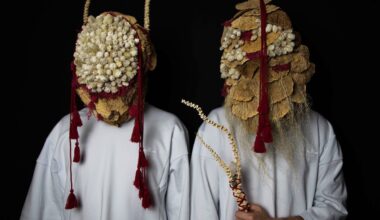Luka Aron is a musician and composer of minimalist electroacoustic music based between Berlin and Stockholm. The core of his practice is the spectral fusion of synthesised sound and acoustic instruments, combining the raw energy of power electronics with the fragility of the human touch.
Aron’s work has been described by The Guardian as “thick, impasto layers of slow-moving sound that completely command your attention.”
The framework of Aron’s compositions is often based on the observation of psychoacoustic phenomena and how they relate to just intonation. A careful selection of partials is presented, stimulating additional tones in the perception of the listener. Through this, a secondary structure is gradually unveiled: like light rays meeting the surface of water, partially reflecting back to air, and refracting at once, as they pass from one medium to the other. By putting the act of tuning at the center, many beating patterns are exposed and the spectrum is flooded with overtones and feedback. As such, Aron employs methods of reverse-engineering auditory processes, with the aim to invoke alternate listening modes.
Aron is a graduate of Musikakademie Basel (CH) and is currently pursuing a master’s degree in Electroacoustic Composition at The Royal College of Music in Stockholm (SE). Aron’s work has been presented at Berghain, KW Institute for Contemporary Art, Harpa, Primavera Sound, Robot Festival, Dancity Festival, The Royal College of Music, among others. Apart from his solo project, he is part of the trio Minua and the dream gaze band Roomer. Frequent collaborations and performances include musicians such as Skùli Sverrisson, Jim Black, Ludwig Wandinger, as well as the artist Courtesy.
FACTS
1. The ears don’t have eyelids.
2. Currently obsessed with the 17th and 19th harmonics.
3. Into fermentation and phenomenology.
QUESTIONS
1. What is the biggest inspiration for your music?
Sound itself, and our perception of it.
2. How and when did you get into making music?
Through some of my parent’s friends that played in local bands. And through the internet! I grew up in the countryside, and music was always a sort of alternate-world-building, an escape from the provincial mindset.
3. What are 5 of your favourite albums of all time?
Some recent favorites:
Marc Sabat – Gioseffo Zarlino
Guillaume de Machaut – Motets (performed by the Hilliard Ensemble)
Catherine Lamb – Divisio spiralis
Dewa Alit and Gamelan Saluktat – Chasing the Phantom
Sosena Gebre Eyesus – አስር አውታር
4. What do you associate with Berlin?
Berlin evokes in me a blend of affection and frustration. In my experience, there tends to be much talk but not much action and a tendency to go for style over substance. But I’ve learned to appreciate the freedom one has here, especially after spending some time in Sweden, which feels like a much more restricted and regulated environment.
5. What’s your favourite place in your town?
The lakeside veranda of my current home in a suburb of Stockholm. And EMS (Elektronmusikstudion), the city’s center for electronic music, where I’ve recently migrated after spending the last two years in the similarly inspiring studios of The Royal College of Music.
6. If there was no music in the world, what would you do instead?
Some of the things I would love to do more often but don’t find the time for are gardening and foraging. So perhaps, if there was no music, I would attempt to be self-sufficient, or something like that?
7. What was the last record/music you bought?
Visions of the Country by Robbie Basho.
8. Who would you most like to collaborate with?
I have just finished a record for which I was collaborating with a wonderful group of musicians, including Amina Hocine on foghorn organ, Susana Santos Silva on trumpet, Mattias Hållsten on shō, Vilhelm Bromander on contrabass, among others. That might be why at the present moment, I am more interested in interacting with physical spaces, with their resonances and room modes. There are some pure tone pieces on my shelf soon to be re-amped in different localities, ranging from an old nuclear reactor hall and my hometown chapel to a cave structure in the South of Germany.
9. What was your best gig (as performer or spectator)?
Performing solo in Berghain’s big hall was quite a profound experience.
10. How important is technology to your creative process?
I rely on it and the people creating some of the software and electronic instruments I use. But I regard it as no different from how a violinist depends on the craft of a luthier or a painter is dependent on the production of their chosen paraphernalia.
11. Do you have siblings and how do they feel about your career/art?
A younger brother with whom I sometimes made music back in the day. He was playing the electric bass before moving on to follow his own dreams. We have always supported each other, regardless of the different paths we took.


